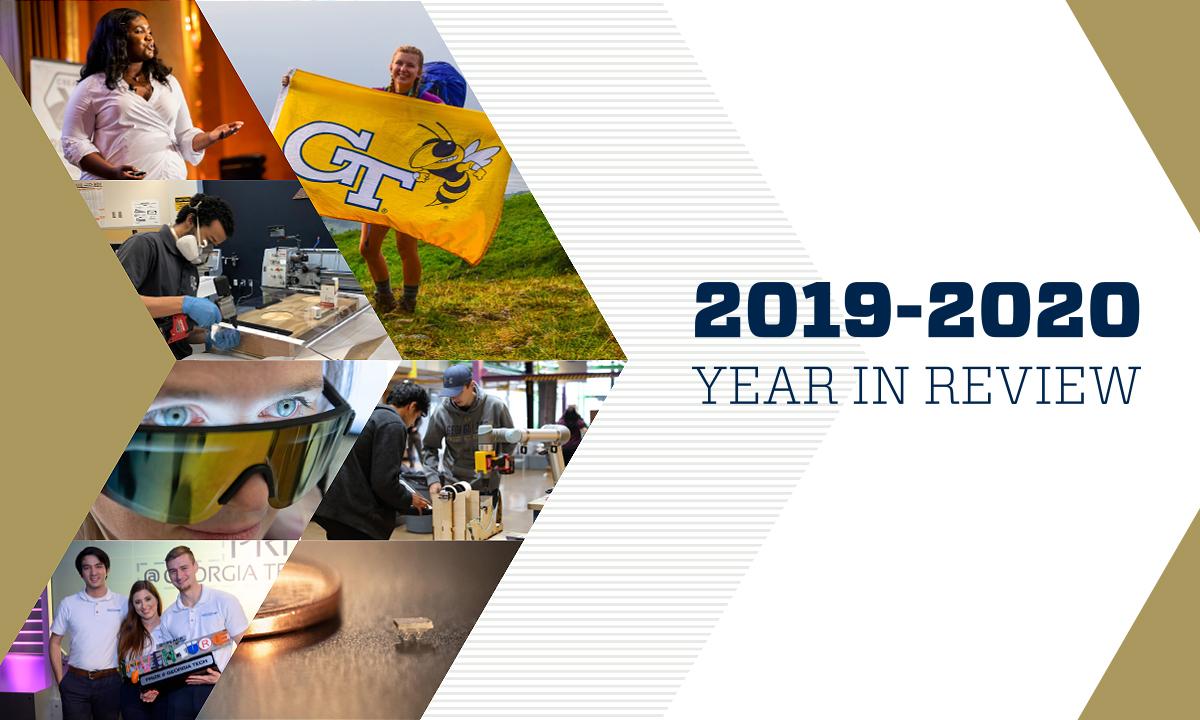
Changes and Challenges
Over the past year, the College of Engineering has undergone many changes and challenges. The Covid-19 pandemic has altered our world and affected every aspect of the College. We continue to move forward together as a community, still holding classes and with much of the research taking place on and off campus helping in the battle against Covid-19.
Beginning in March, students stayed home after spring break and continued classes virtually. Faculty and students were able to quickly pivot to a non-traditional approach to learning. Our community pulled together to continue to deliver the exceptional education experience that Tech is known for. The leadership team at the College quickly put measures in place to ensure uninterrupted learning for students with full faculty support.
An important challenge that also faces our community today is social justice. In the face of systemic racism and other injustices, the College has taken a stance and put measures in place to ensure the College remains as inclusive and diverse as possible. For those directly affected by the racism in our country, the College is dedicated to being strong allies of the community.
Throughout all of these changes and challenges, we stand together. The College remains committed to our students, faculty, research endeavors and the quest to create the most diverse and inclusive community possible.
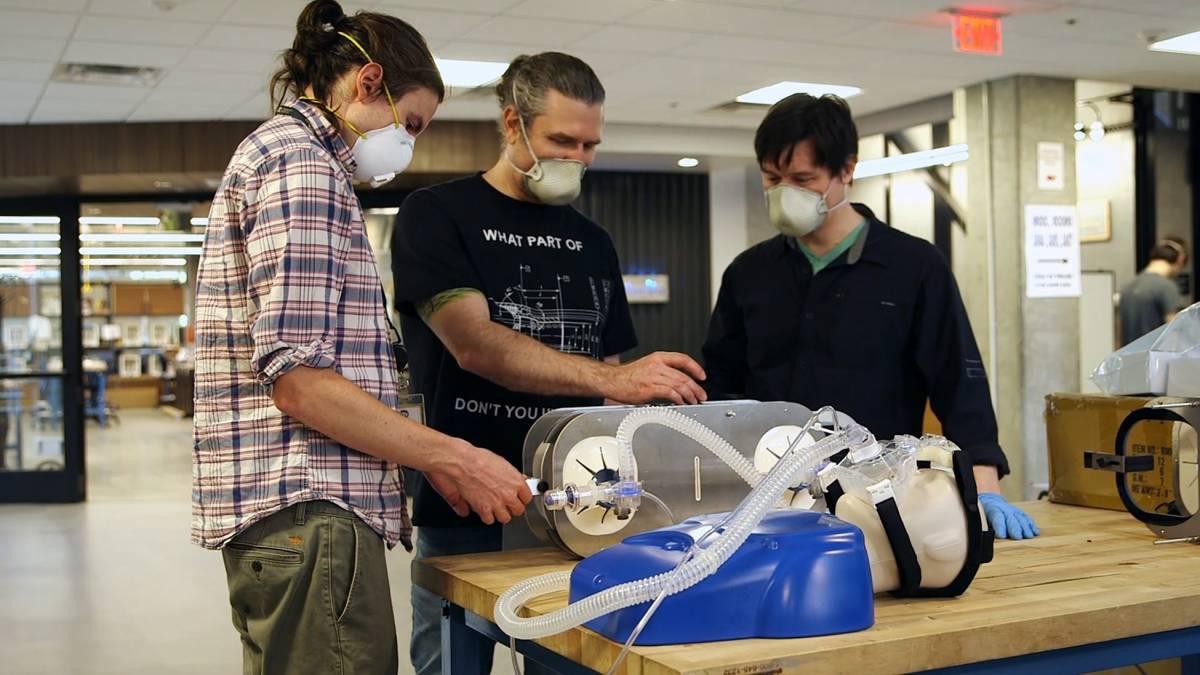
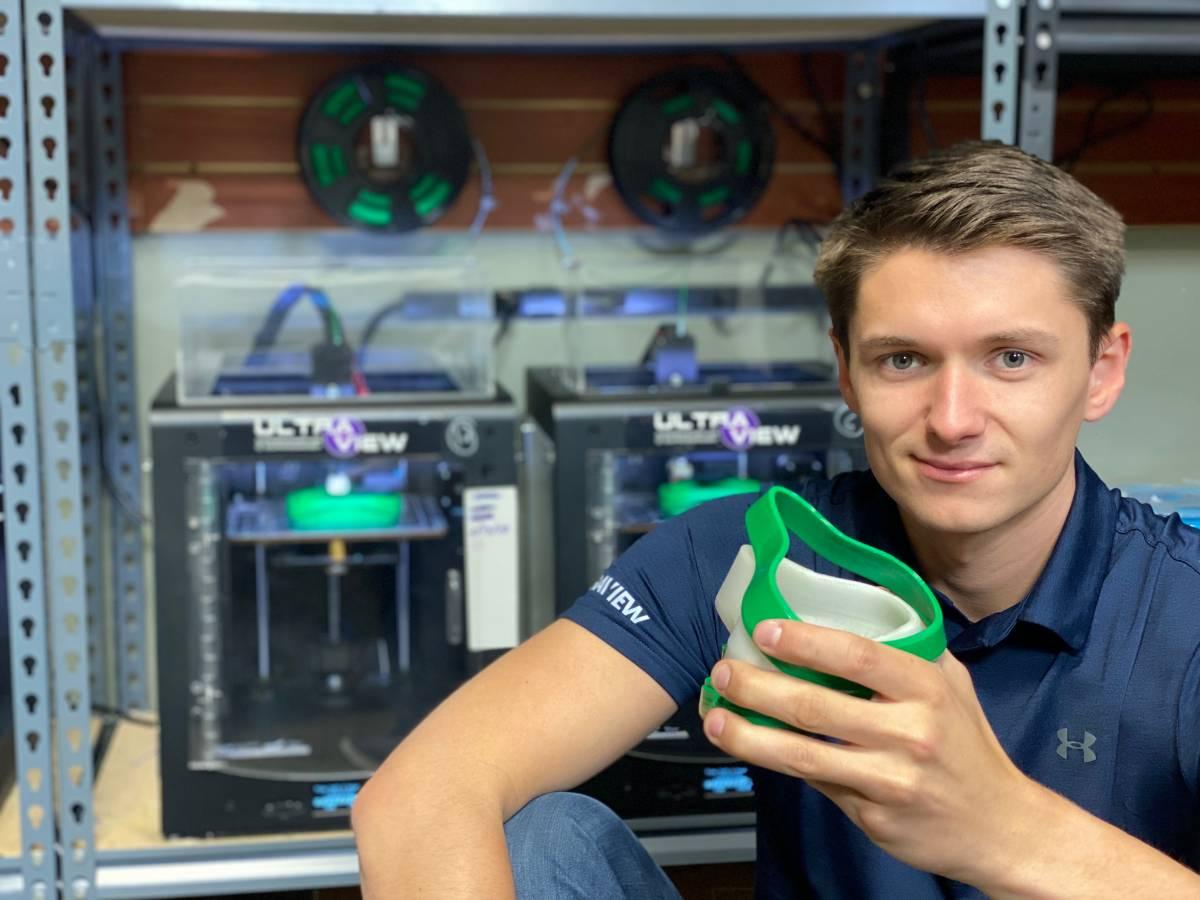
The College in the Time of Covid-19
Since spring, our students and faculty took action in the face of the pandemic, showing ingenuity and tenacity in the face of uncertainty. Our researchers and students created personal protective equipment (PPE), respirator parts, ventilators, and provided insight into how to slow the spread of the virus.
In the Woodruff School of Mechanical Engineering, Chair Sam Graham, researcher Chris Saldana and countless other student volunteers created face shields deployed to many local hospitals. Shannon Yee, ME associate professor, helped in leading a team to create a low-cost ventilator based on easy-to-source resuscitation bags. A recent Materials Science and Engineering graduate Kolby Hanley turned his company’s factory into a rapid response center that’s creating respirator parts. And, Pinar Keskinocak, professor in the Stewart School of Industrial and Systems Engineering and director of the Center for Health and Humanitarian Systems, gave her expert commentary on how this pandemic is spreading, measures we can take to stay safe, and how the pandemic affects the supply chain. These are just a few examples of what our engineers are doing in the face of Covid-19.
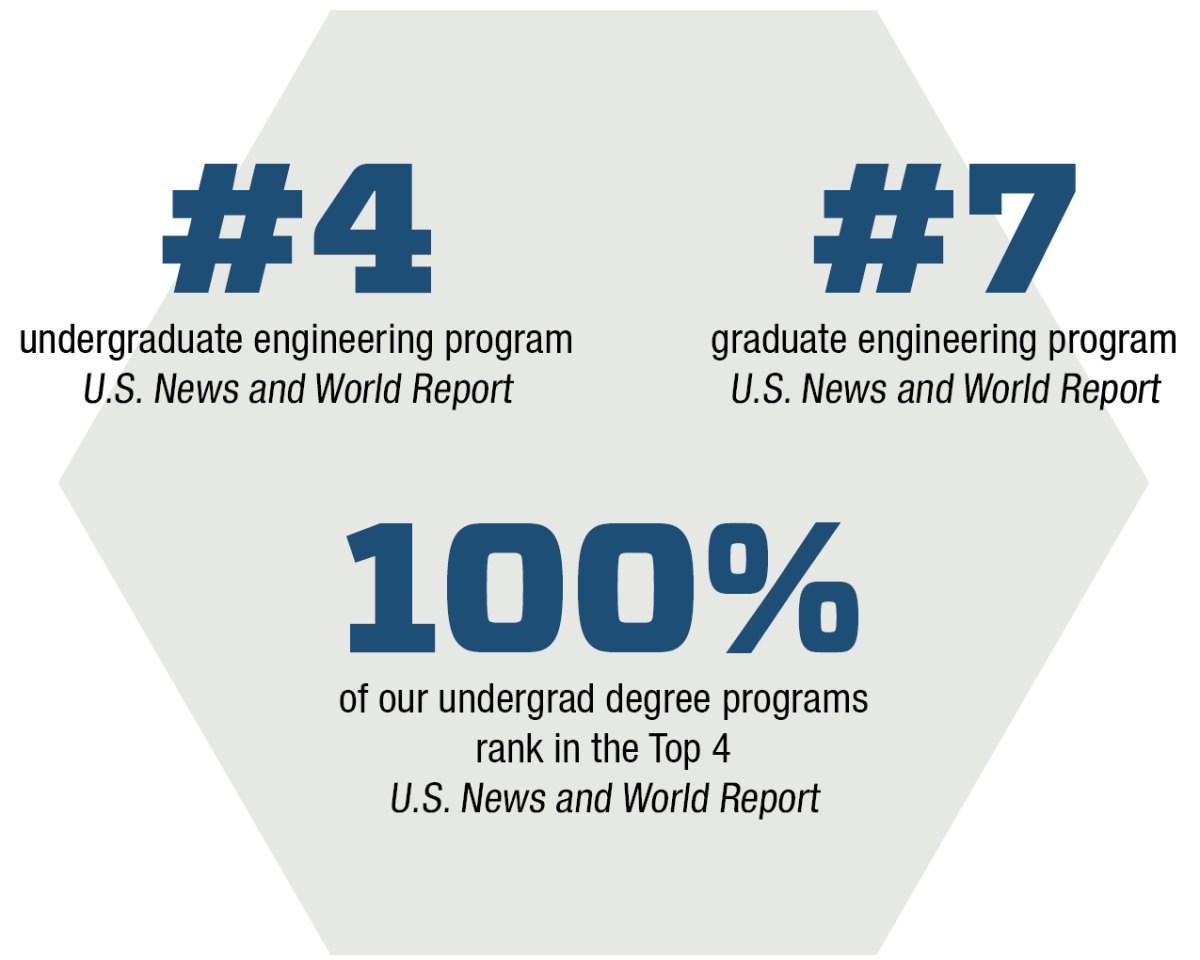
Student Excellence
Our students are essential to the innovative, collaborative and inclusive environment of the College. Engineering students across campus make up 61% of our undergraduate student body. In fact, this year the 100,000th living engineering graduate, Oluwaferanmi Adeyemo (ChBE), crossed the stage at fall commencement.
Awards for our engineers this year were plentiful. Xueqiao Wang (MSE) received the Tau Beta Pi Award, Tech’s highest undergraduate engineering award, for her academic excellence, leadership, and service in the School. Triple-major Daniel Gurevich (ISyE) won the Love Family foundation Scholarship, the highest honor Georgia Tech can give to a graduating student. Additionally, Lillian Anderson (ECE) received the Helen Grenga Outstanding Woman Engineer Award for demonstrating outstanding scholarship, leadership and service in her field and in the Georgia Tech community. At the Capstone Design Expo this fall, the best overall project was “Sky’s the Limit,” made up of eight ISyE majors and sponsored by Delta to examine the airline's warehousing methods. The InVenture Prize competition honored team Aerodyme Technologies with second place, recognizing Tyler Boone (ME), Joy Bullington (ISyE) and Jayce Delker (ME). Their startup aims to provide more aerodynamic parts for tractor trailers.
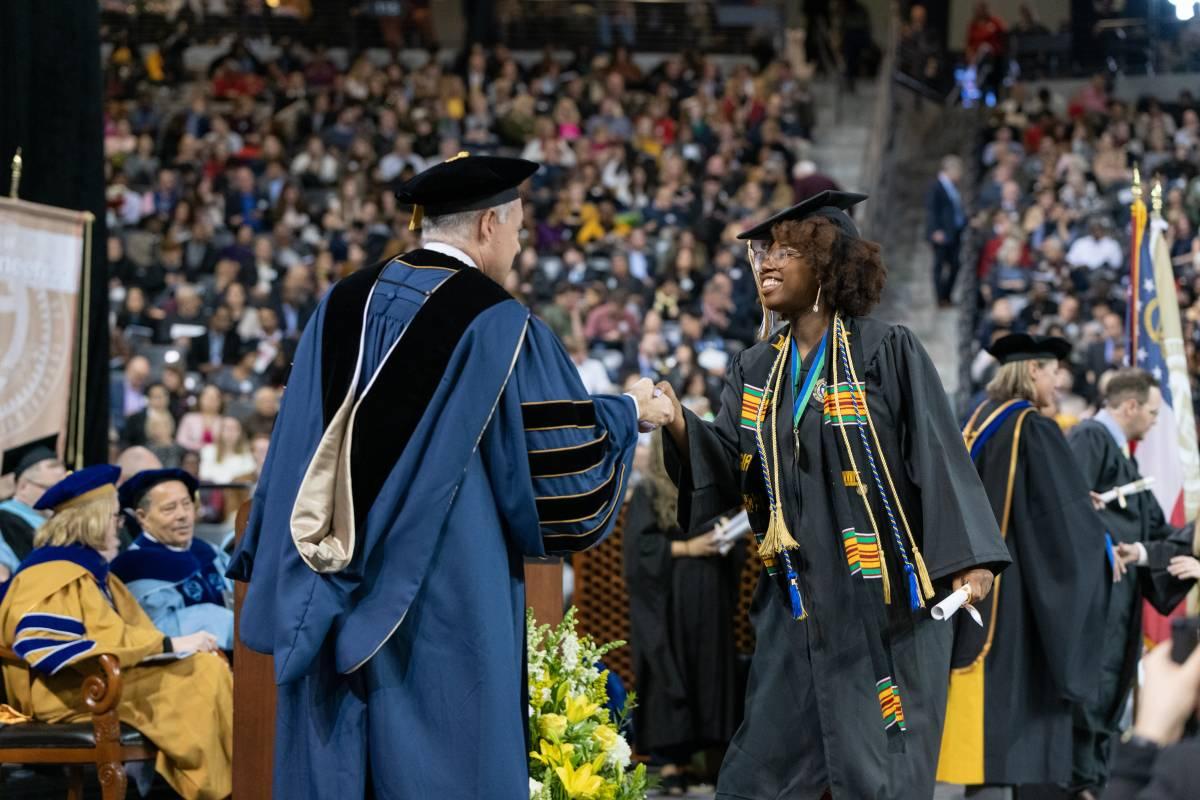
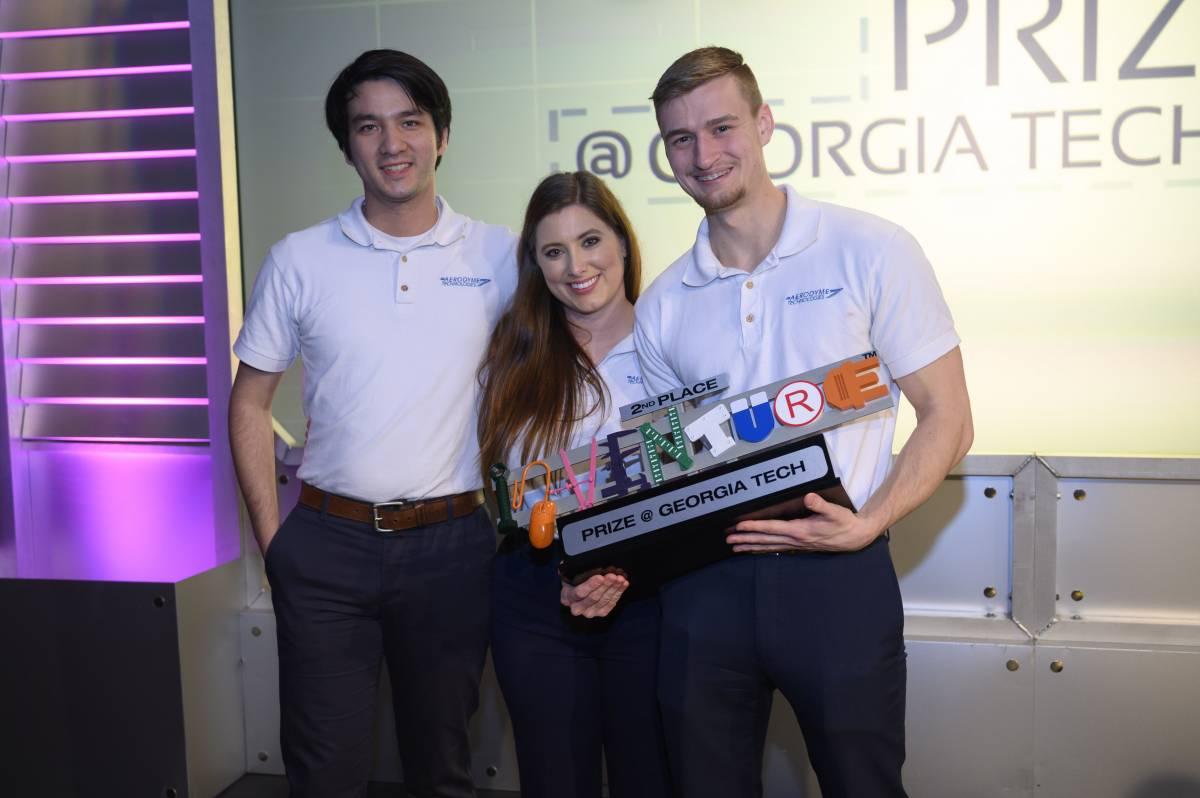
Innovation and entrepreneurship are also critical to the mission of the College. CREATE-X, a Georgia Tech initiative to instill entrepreneurial confidence in students and empower them to launch successful startups, reached a milestone: Crescendo, co-founded by Seth Radman (ME) was acquired by Ultimate Guitar, which plans to use the startups AI to enhance their music training apps. CREATE-X startup Ethos, co-founded by Cassidy Wang, Dev Mandavia and Lucas Muller, all BME alumni, received a $225,000 grant from the National Science Foundation to continue work on their lumbar puncture guidance system.
A new cohort of Clark Scholars also joined campus this year – 10 first-year students who received financial support so they can cultivate strong academic and leadership skills. There are now 20 Clark Scholars on campus, all engineers, who are contributing to the ideals of service and progress at Georgia Tech. Mackenzie Sicard (ISyE), part of the first cohort of scholars, was heavily involved in Tech Trek with Outdoor Recreation at Tech and leads other students on expeditions to places like Alaska. Our scholarship students are poised to take advantage of the resources from the College and make an impact on our society.
Academic Rigor
The faculty in the College of Engineering are some of the best in the world with their dedication to exceptional instruction and applied learning methods. In recognition of their outstanding work, many of our faculty receive a variety of teaching awards. Don Webster, school chair of CEE, was honored for teaching excellence by the University System of Georgia, an award that recognizes faculty for their strong commitment to teaching and student success. Susan Burns (also CEE) was selected as the 2020 Engineer of the Year by the Georgia Society of Professional Engineers for her tremendous impact on the engineering profession through her research, teaching and professional service.
The University System of Georgia’s Board of Regents announced seven Georgia Tech professors as Regents Professors, including Victor Yang (AE) and Suresh Sitaraman (ME). This title is bestowed upon faculty whose careers demonstrate distinction and achievement in teaching and scholarly research. This year, Mark Davenport (ECE) and Matthew McDowell (ME) received the Presidential Early Career Award for Sciences and Engineers (PECASE), the highest honor bestowed by the United States Government to outstanding scientists and engineers who are beginning their independent research careers and who show exceptional promise for leadership in science and technology.
Dean Steve McLaughlin won the University of Michigan 2019 Electrical and Computer Engineering Distinguished Educator Award, cited as a visionary within the field and celebrated for his exceptional work in educating the engineers of the future.
The National Academy of Engineering (NAE) elects new members to its organization every year, honoring them with the highest professional distinction given to an engineer. This year, Thomas Kurfess (ME), Susan Margulies (BME) and Alexander Shapiro (ISyE) were formally inducted due to their outstanding contributions to engineering research, practice and education. The NAE also honored three BME faculty members - Paul Benkeser, Joseph LeDoux, and Wendy Newstetter - with the Gordon Prize, a $500,000 annual award that recognizes new methods and concepts in education aimed at developing engineering leaders.
The National Science Foundation (NSF) Faculty Early Career Development (CAREER) Awards honor junior faculty who exemplify the role of teacher-scholars through outstanding research, excellent education, and the integration of education and research. This year, six faculty members received the award, including Saad Bhamla (ChBE), Fani Boukouvala (ChBE), Lily Cheung (ChBE), Andrew Medford (ChBE), Koki Ho (AE) Rachel Cummings (ISyE) and Azadeh Ansari (ECE).
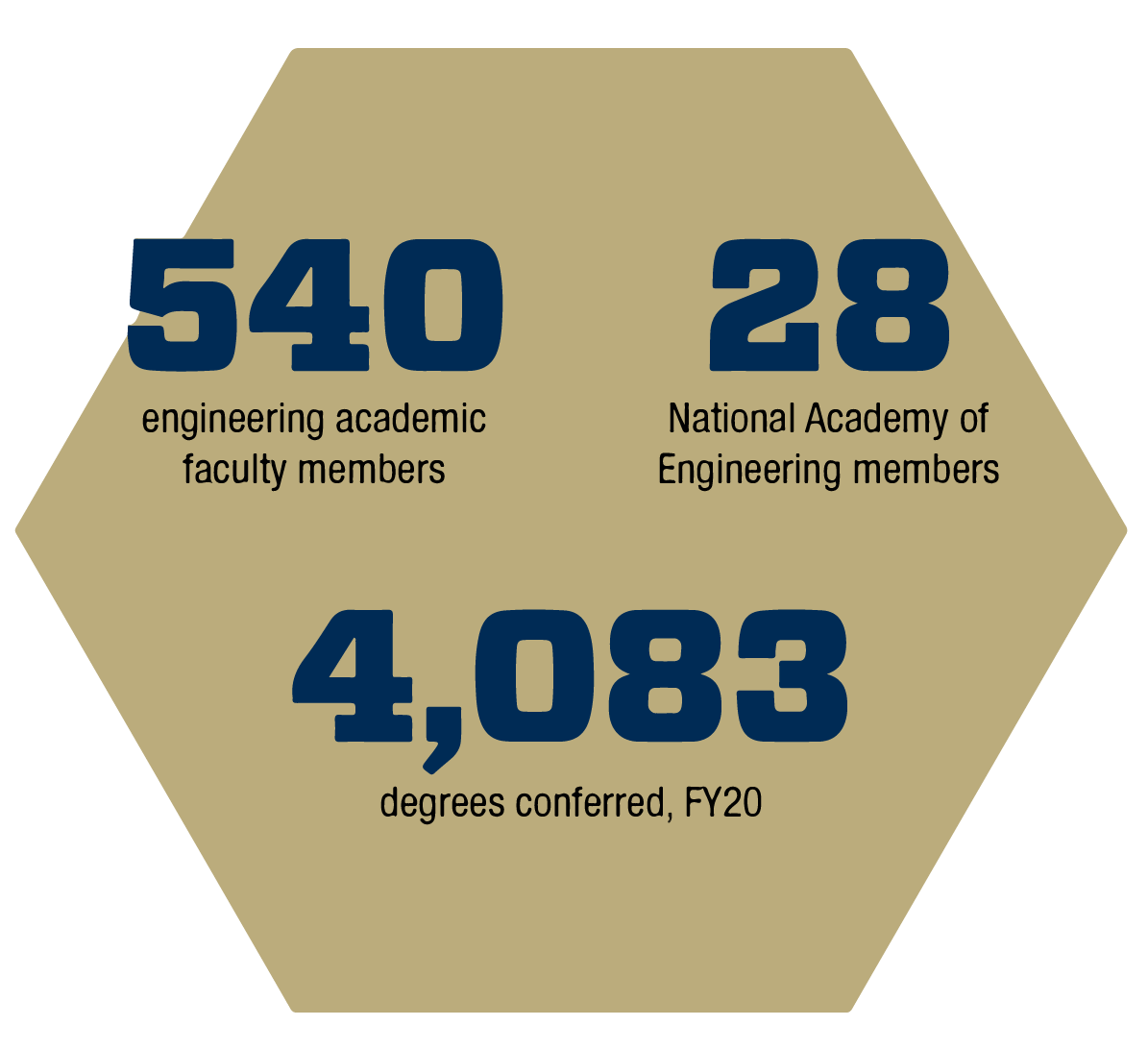
World-Class Research
Alongside instructional excellence, high-impact research is the cornerstone of the College. This year, Krista Walton was named associate dean for Research and Innovation at the College, focusing on enabling faculty members to develop and sustain excellence in scholarship and research. In March, when Covid-19 temporarily shut down research operations, Walton played a key role in the phased approach to re-opening labs across the institute, so the Institute’s mission to improve the human condition could continue.
Throughout the year, research has continued at a fast pace. Shannon Yee (ME) led a $13.5M effort funded by the Bill & Melinda Gates Foundation to reinvent the toilet — technology that hasn’t changed much in more than a century. Anna Erickson (ME/NRE) worked on antineutrino detection that could help remotely monitor nuclear reactors. And, Pascal Van Hentenryck’s (ISyE) used machine learning and optimization to start his Socially Aware Mobility Lab to increase accessibility to mass transit.
The intersection of engineering and health is also core to the research happening at the College. Annabelle Singer (ME) co-led a study this year to determine if flickering light that mobilizes brain chemistry could fight Alzheimer’s disease. Pinar Keskinocak (ISyE) continued her work in optimizing the flu vaccine supply chain for maximum impact. Brandon Dixon (ME) also co-led a study looking at lymphedema monitoring technology that could detect harsh side effects of breast cancer treatment. And, Mark Prausnitz (ChBE) created a microscopic STAR particle treatment that could treat skin diseases.
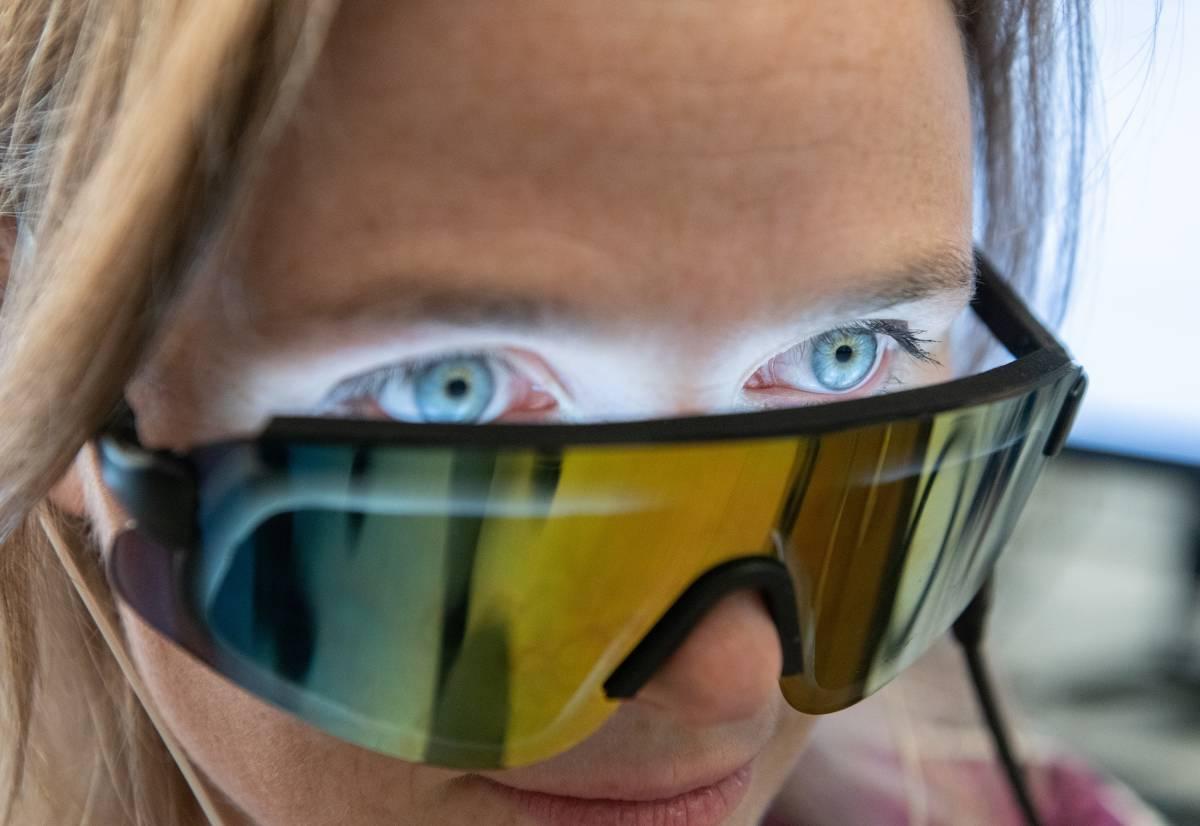

Notable Grants
- DARPA: $9.2M to inter-agency team researching quantum computing, including Swati Gupta (ISyE)
- National Institutes of Health: $3.2M for follicular lymphoma research, led by Susan Thomas (ME)
- National Institutes of Health: $31M to help lead testing validation in RADx program for Covid-19 diagnostic solutions, led by Wilbur Lam (BME)
- National Science Foundation: $1.7M to build robot for sub-surface soil exploration, led by Chloé Arson and David Frost (CEE) and others
- National Institutes of Health: $1.6M to support groundbreaking research, led by Chris Rozell (ECE) and Garrett Stanley (BME)
Research awards and recognitions
- Arkadi Nemirovsk (ISyE) was elected to the National Academy of Science for outstanding contributions to foundational mathematics
- Marta Hatzell (ME) received an Office of Naval Research (ONR) Young Investigator Award for her research on energy generation
- Saibal Mukhopadhyay (ECE) received Intel’s 2019 Outstanding Research Award for his work in quantum computing and AI
- Stanislav Emelianov (ECE) was named an IEEE Fellow for his contributions to ultrasound elasticity and photoacoustic imaging
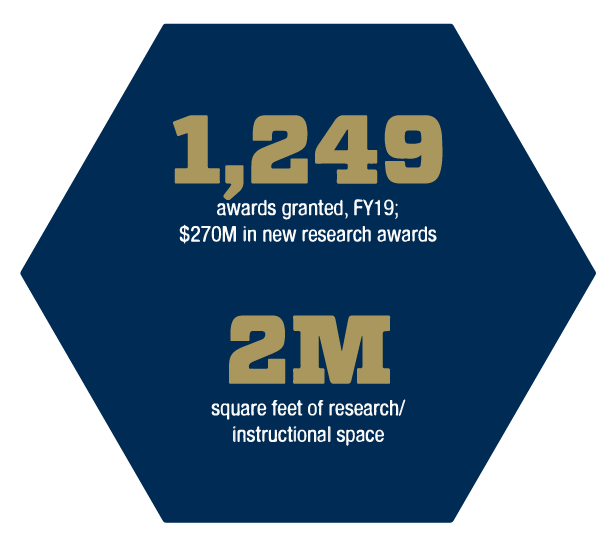
An Inclusive Community
Now, more than ever, diversity and inclusion are top priorities for the College, and we are committed to the fight against racism, discrimination, racial bias and racial injustice. Our shared vision is one of social justice, opportunity, community, anti-racism and equity. We believe that the diversity and contributions from all of our members are essential and make us who we are.
This year, Tech’s chapter of the National Society of Black Engineers won the 2019-20 Large Chapter of the Year Award for exemplary academic excellence, professional success, community service and cultural responsibility.
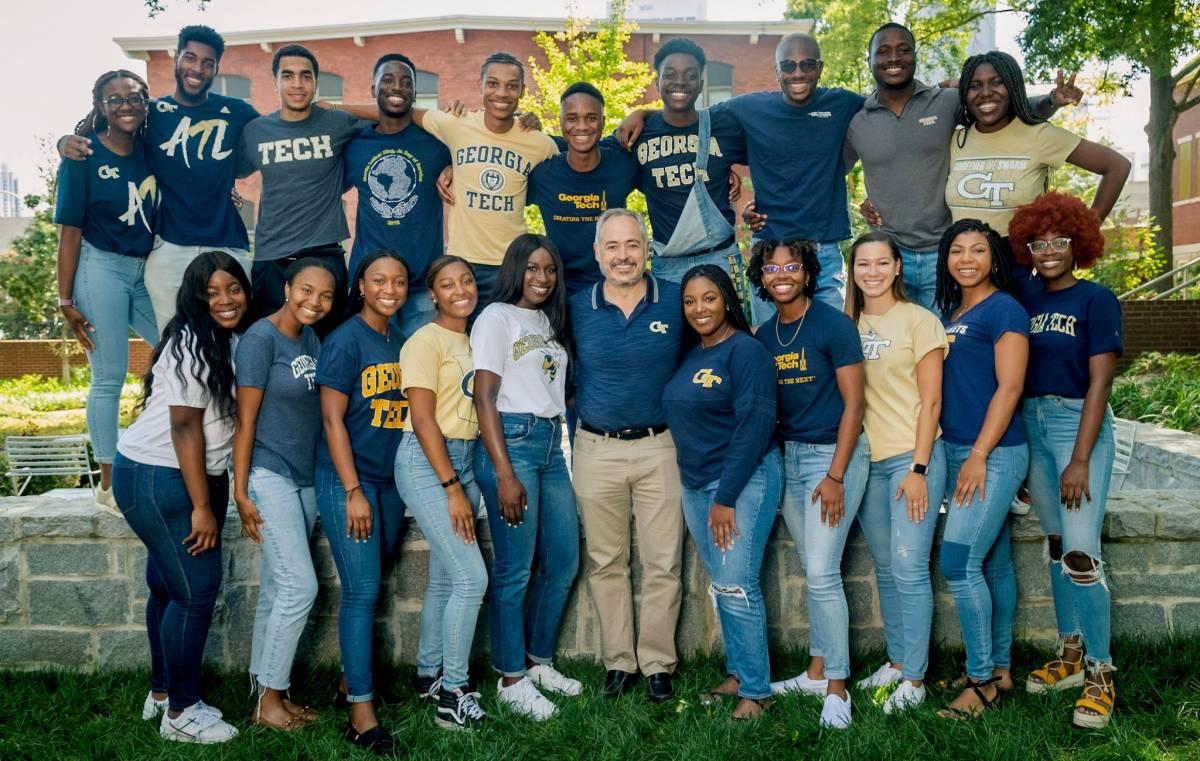
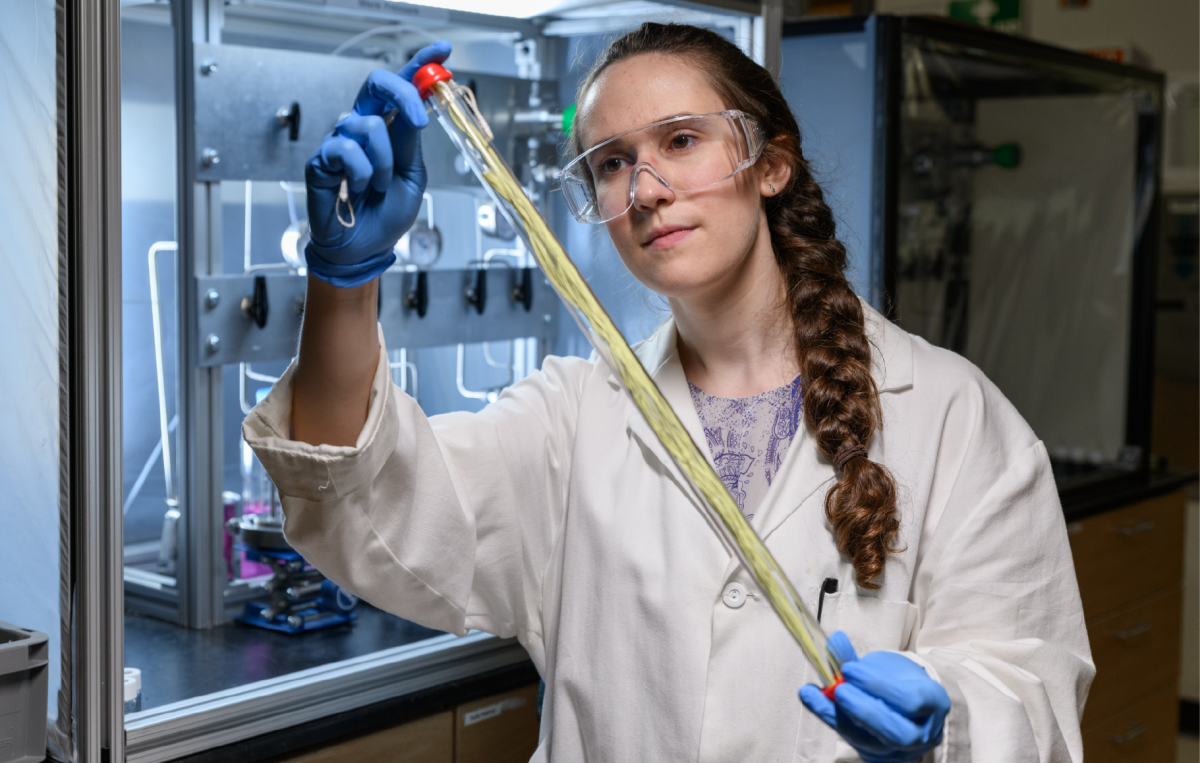
Since 2004, the College has been the largest producer of female engineers in the U.S. Thirty-six percent of the College’s undergraduate engineering students are women, as opposed to just 18% nationally.
To help deal with mental health issues on the campus, a new initiative was started by the Dean to help faculty members recognize signs of mental distress and guide students to counseling services when needed. Faculty were trained in the Question Persuade Refer methodology to enable them to recognize signs of a student in distress. Advisors are joining the College who already have counseling experience. And, embedded counselors were also added to several engineering buildings to encourage students to reach out for therapy and to quicken availability for much needed services
The College’s Staff Culture Advisory Council (COESCAC) implemented a staff development program to provide staff opportunities to develop professionally and network within the College. The Unlocking the Mysteries of the Dean’s Office lecture series brought faculty and staff together to better understand the roles everyone plays in the College. Gender equality in the workplace was also a focus this year with a workshop on better understanding gender harassment and how it impacts individuals and communities.
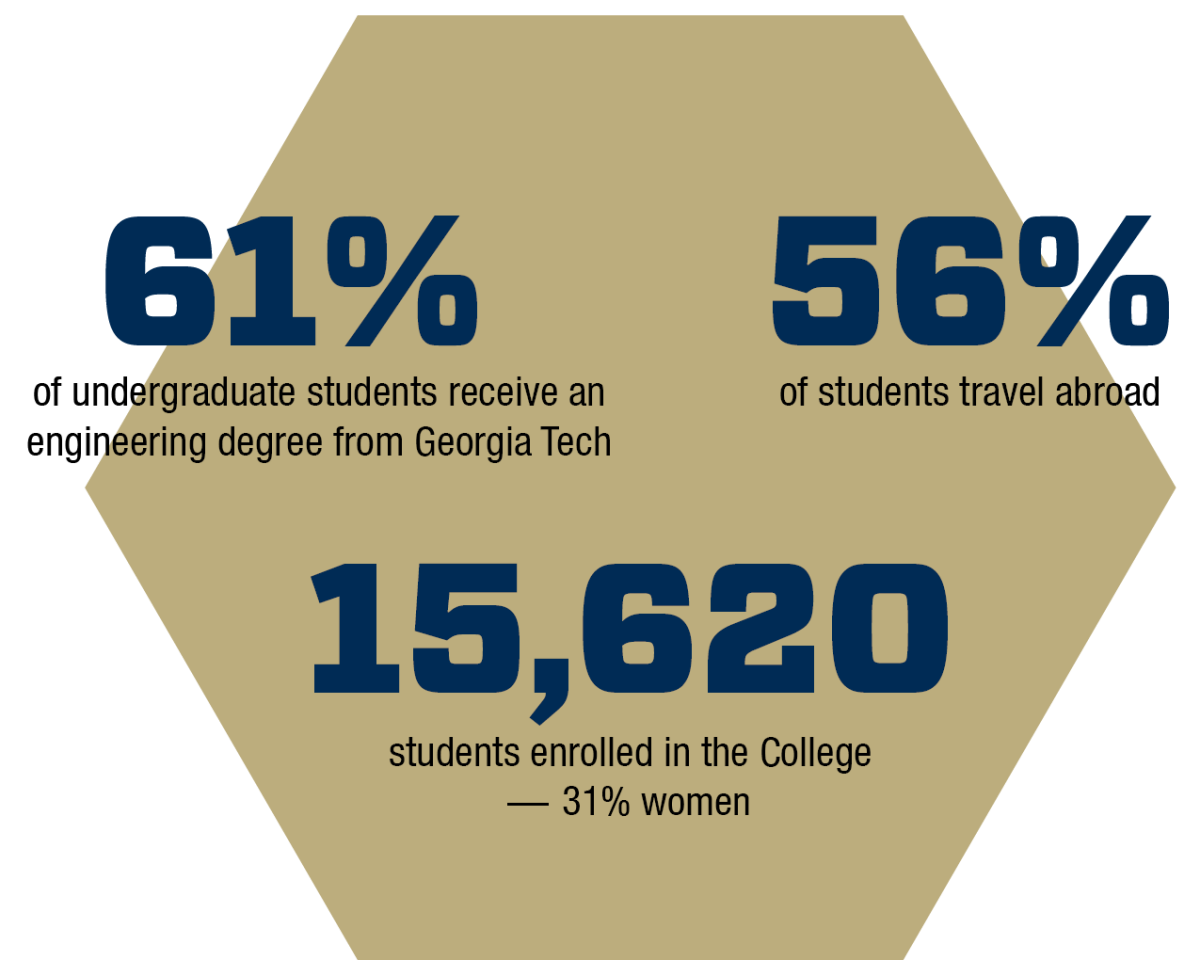
Next Steps, Together
This year, the College embarked on building a strategic plan. One that operates as a guide as we determine how to better serve our students, support our community, and foster creativity and discovery across the College. The three tenets of Community, Learning and Discovery underscore everything we do at the College. In 2021 and beyond, we will move forward with a shared purpose to inspire and prepare a community of inclusive and community-driven engineering students and faculty.
Schools
- The Daniel Guggenheim School of Aerospace Engineering (AE)
- The Wallace H. Coulter Department of Biomedical Engineering at Georgia Tech and Emory University (BME)
- School of Chemical and Biomolecular Engineering (ChBE)
- School of Civil and Environmental Engineering (CEE)
- School of Electrical and Computer Engineering (ECE)
- The H. Milton Stewart School of Industrial & Systems Engineering (ISyE)
- School of Materials Science and Engineering (MSE)
- The George W. Woodruff School of Mechanical Engineering (ME)
- Nuclear & Radiological Engineering (NRE)
Administration
- Steve McLaughlin, Dean and Southern Company Chair
- Laurence Jacobs, Associate Dean for Academic Affairs
- Krista Walton, Associate Dean for Research and Innovation
- Kimberly Kurtis, Associate Dean for Faculty Development and Scholarship
- Douglas Williams, Associate Dean for Administration and Finance
